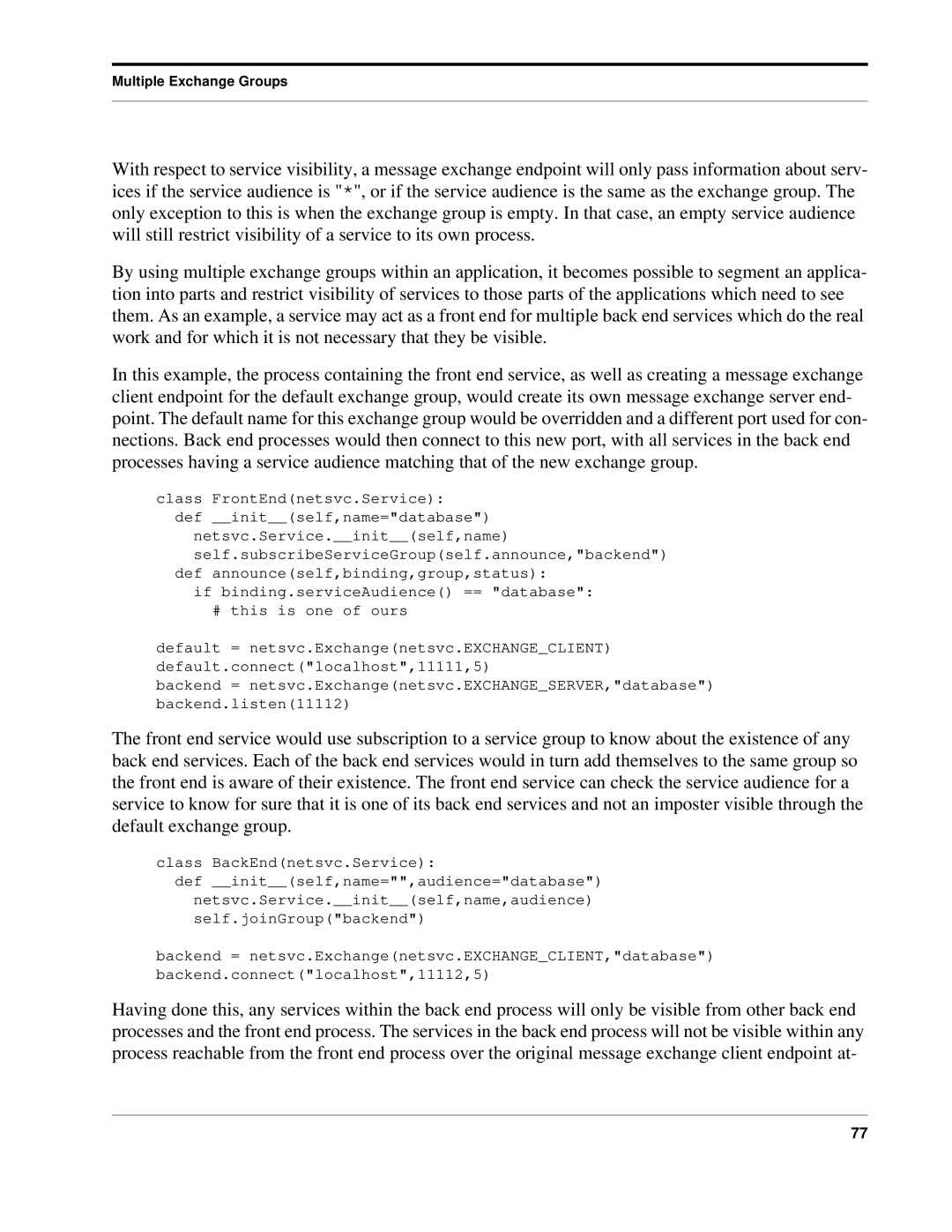
Multiple Exchange Groups
With respect to service visibility, a message exchange endpoint will only pass information about serv- ices if the service audience is "*", or if the service audience is the same as the exchange group. The only exception to this is when the exchange group is empty. In that case, an empty service audience will still restrict visibility of a service to its own process.
By using multiple exchange groups within an application, it becomes possible to segment an applica- tion into parts and restrict visibility of services to those parts of the applications which need to see them. As an example, a service may act as a front end for multiple back end services which do the real work and for which it is not necessary that they be visible.
In this example, the process containing the front end service, as well as creating a message exchange client endpoint for the default exchange group, would create its own message exchange server end- point. The default name for this exchange group would be overridden and a different port used for con- nections. Back end processes would then connect to this new port, with all services in the back end processes having a service audience matching that of the new exchange group.
class FrontEnd(netsvc.Service):
def __init__(self,name="database") netsvc.Service.__init__(self,name) self.subscribeServiceGroup(self.announce,"backend")
def announce(self,binding,group,status):
if binding.serviceAudience() == "database":
# this is one of ours
default = netsvc.Exchange(netsvc.EXCHANGE_CLIENT) default.connect("localhost",11111,5)
backend = netsvc.Exchange(netsvc.EXCHANGE_SERVER,"database") backend.listen(11112)
The front end service would use subscription to a service group to know about the existence of any back end services. Each of the back end services would in turn add themselves to the same group so the front end is aware of their existence. The front end service can check the service audience for a service to know for sure that it is one of its back end services and not an imposter visible through the default exchange group.
class BackEnd(netsvc.Service):
def __init__(self,name="",audience="database") netsvc.Service.__init__(self,name,audience) self.joinGroup("backend")
backend = netsvc.Exchange(netsvc.EXCHANGE_CLIENT,"database") backend.connect("localhost",11112,5)
Having done this, any services within the back end process will only be visible from other back end processes and the front end process. The services in the back end process will not be visible within any process reachable from the front end process over the original message exchange client endpoint at-
77
